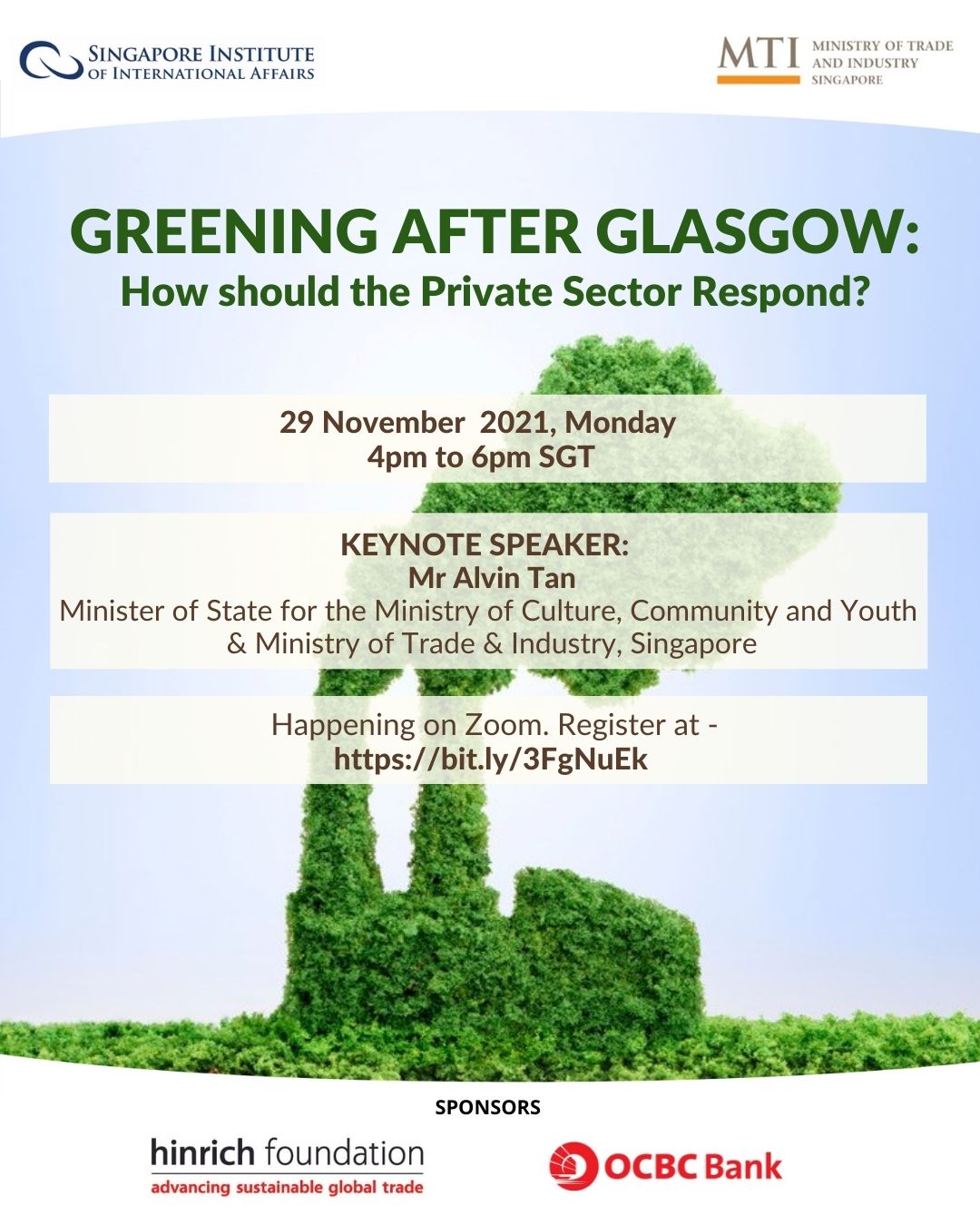Upcoming Events
Greening after Glasgow – How should the private sector respond?
The COP26 meeting concluded with a compromise deal on a number of important issues, including coal usage, deforestation, and methane emissions. What is the ASEAN community's potential role in these decarbonization efforts? Join a webinar on November 29, co-hosted by the Singapore Institute of International Affairs and the Ministry of Trade and Industry and featuring Senior Research Fellow Stephen Olson, for a discussion.

The COP26 climate meeting has renewed hope and ambition by bringing together world leaders from across the globe, shining a spotlight on the climate crisis, and serving as a catalyst for governments, businesses, and individuals to take concrete climate action. But the hard work continues after the meeting. The ASEAN region will increasingly be impacted by global developments such as the push for national carbon pricing, as well as proposed carbon border adjustments. This gives rise to an opportunity for ASEAN countries and corporations to collaborate, capture green economy opportunities and align the region with global climate efforts.
Concerted effort must be made for decarbonization, particularly in the energy sector, while carbon markets should also be developed to address unavoidable emissions in the short term. The private sector is key to these efforts. How can companies respond to the developments from COP26, and drive the transition to net-zero? This question will be addressed in the Singapore Institute of International Affairs (SIIA) webinar, ‘Greening after Glasgow – How should the private sector respond?”.
During the webinar, the Singapore Institute of International Affairs (SIIA) will also be launching its special report, ‘Greening the Road Ahead: Building a Collective ASEAN Climate Community’. This report and event is co-sponsored by the Hinrich Foundation and co-organized by the SIIA and the Ministry of Trade and Industry, Singapore.
The webinar has ended.
